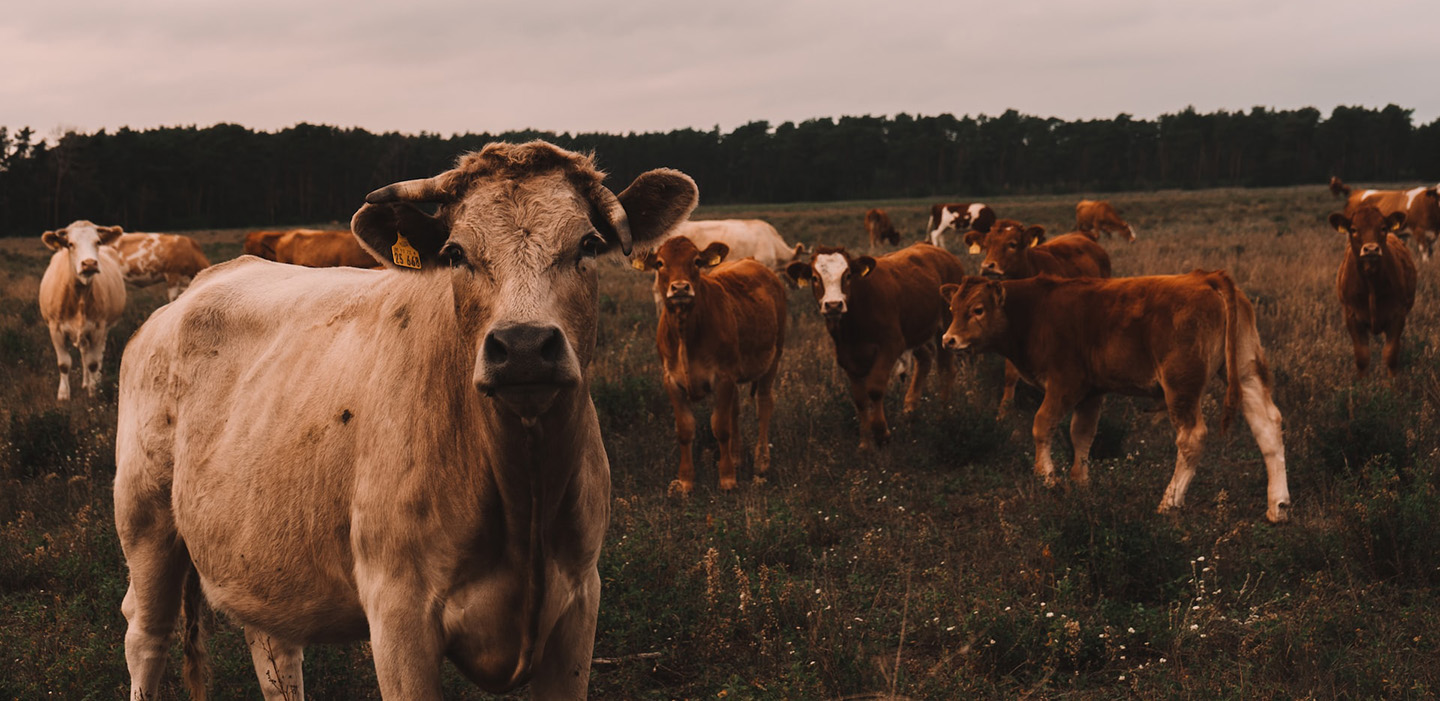Download the Agreement or scroll to find out more and join the movement.

What is the climate Agreement for Food and Farming?
Signatories to this Climate Agreement on Food and Farming agree to contribute to a collective effort to reduce food and/or farm related greenhouse gas emissions by at least 30 percent from 2020 levels by 2030, which could eliminate over 0.2˚C warming by 2050, if sufficient countries would sign. Food systems are responsible for between 23 and 42 percent of global greenhouse gas emissions, and reducing food and agriculture related emissions is essential to meet the 1.5°C target. By signing, political and business leaders are sending a united signal to step up global ambition and encourage others to match their collective ambition for climate, nature and people with the scale of the crisis at hand. This Climate Agreement on Food and Farming is a logical follow up action for approximately 100 countries who signed the Leaders’ Pledge for Nature, the Methane Pledge (2021, Glasgow), the Zero Deforestation Pledge (2021, Glasgow) or statements from the High Ambition Coalition (Climate policies).
Who can sign?
Signing can be done by UN member states, UN non-member states, intergovernmental organisations, regions/states with over 10 million people and large (food and retail) companies.
The Climate Agreement on Food & Farming is open to further supportive endorsements by Non State actors (business, civil society, financial institutes, local/regional governments, UN organisations, science, youth, health sector etc.). Non State actors can help to ask national governments or companies to sign the Agreement. info@climateagreementfoodfarming.org
When to sign?
Signatories can sign online at any time at https://form.jotform.com/222742859990369, or physically during the COP27 Climate Conference in Egypt during a COP27 Press conference 7th November 13.30-14h EET (12.30 h CET) (Room Luxor) or during a side event Friday, November 11, 15:00-16:30 EET (starting 14h CET), in Room 9, https://www.craft.do/s/r1oLPStwaTPMGQ
Commitments already done by non-signatory countries
Nine countries including Germany, Netherlands, China, New Zealand, United Kingdom, Sweden, Denmark, Belgium and Italy and for the European Commission committed to at least two climate policies to reduce GHG-emissions from agriculture and two (climate) policies that help reduce GHG-emissions and carbon footprints of food consumption. This is shown by research from TAPP Coalition, to read more about our analysis of existing commitments, click here

from agriculture/farms with 30% by 2030 compared to 2020 levels (or 2018-2020 levels)
by 2030 compared to 2020 levels (for states: reduce national per capita annual food consumption related GHG-emissions 30% by 2030 compared to 2020 levels; for food/retail companies: reduce company scope 1,2 3 emissions 30% by 2030, including from all food products sold)
and two actions to reduce agriculture-related GHG emissions, put in place by the end of 2025, that substantially help to realise the 2030 reduction goals